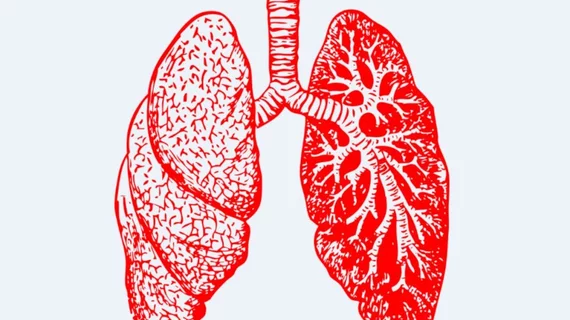A deep-learning algorithm beat thoracic radiologists at classifying fibrotic lung disease, according to research published Sept. 15 in The Lancet Respiratory Medicine.
Simon L. F. Walsh, with King’s College Hospital Foundation Trust in London, and colleagues used 1,157 anonymous high-resolution CT scans with fibrotic lung disease to train, validate and test their artificial intelligence (AI) platform.
The algorithm examined 150 CT images with the disease and achieved greater accuracy compared to 91 thoracic radiologists—outperforming 60 (66 percent) of them. Median accuracy of the algorithm was 73.3 percent compared to radiologists’ 70.7 percent.
Additionally, interobserver agreement between the algorithm and radiologist’s majority opinion was “good,” with a weighted K coefficient of 0.67, authors reported. That mark outperformed 62 percent of the 91 radiologists.
Overall, Walsh and colleagues believe the algorithm could aid many areas of fibrotic lung disease care.
“High-resolution CT evaluation by a deep learning algorithm might provide low-cost, reproducible, near-instantaneous classification of fibrotic lung disease with human-level accuracy,” the authors concluded. “These methods could be of benefit to centers at which thoracic imaging expertise is scarce, as well as for stratification of patients in clinical trials.”

